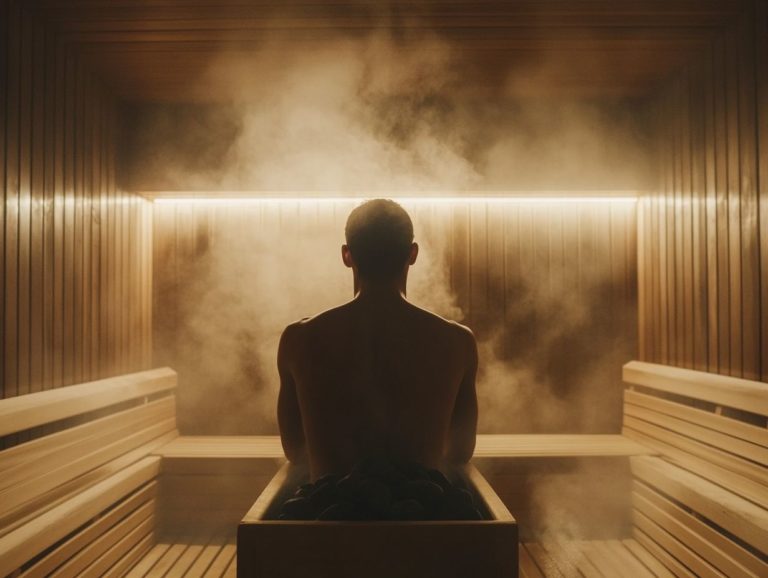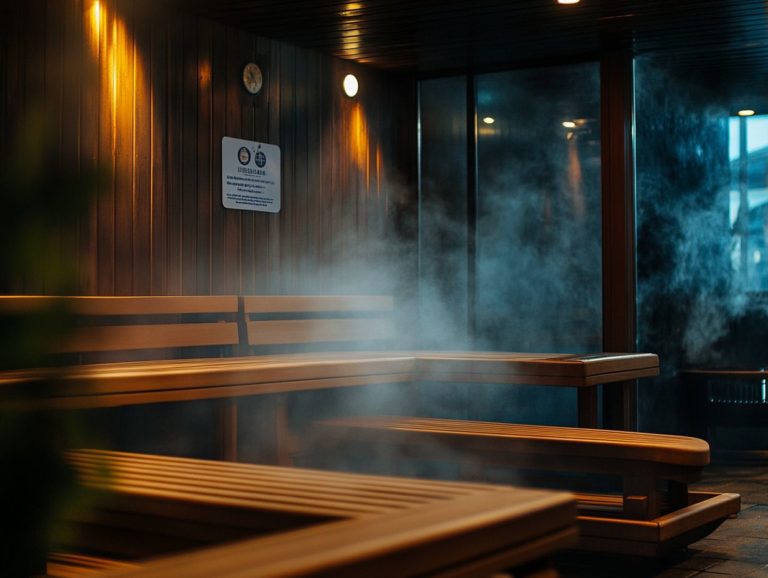5 Simple Techniques for Better Sleep
Are you tired of tossing and turning every night? Let s dive into how you can finally enjoy the restful sleep you crave! In today s fast-paced world, you may find quality sleep often taking a backseat, leaving you feeling fatigued and unable to focus.
If you re struggling to achieve the restful slumber you deserve, this article is here to guide you. Explore five straightforward techniques that can help you create a relaxing sleep environment, establish a consistent sleep schedule, and make more mindful lifestyle choices.
You ll also uncover the benefits of quality sleep, the consequences of sleep deprivation, and how technology and diet can impact your rest. Dive in to discover effective ways to enhance your sleep and boost your overall well-being!
Contents
- Key Takeaways:
- 1. Create a Relaxing Sleep Environment
- 2. Stick to a Consistent Sleep Schedule
- 3. Limit Caffeine and Alcohol Intake
- 4. Practice Relaxation Techniques
- 5. Exercise Regularly
- How Much Sleep Do You Really Need?
- What Are the Consequences of Not Getting Enough Sleep?
- How Can Technology Affect Sleep Quality?
- What Are the Best Foods for Better Sleep?
- What Are Some Common Sleep Disorders and How Can They Be Treated?
- Frequently Asked Questions
- 1. What are the 5 simple techniques for better sleep?
- 2. How can establishing a routine improve my sleep?
- 3. Is creating a comfortable sleep environment important for better sleep?
- 4. Why should I limit screen time before bed?
- 5. Can heavy meals and caffeine affect my sleep?
- 6. How can relaxation techniques help improve my sleep?
Key Takeaways:
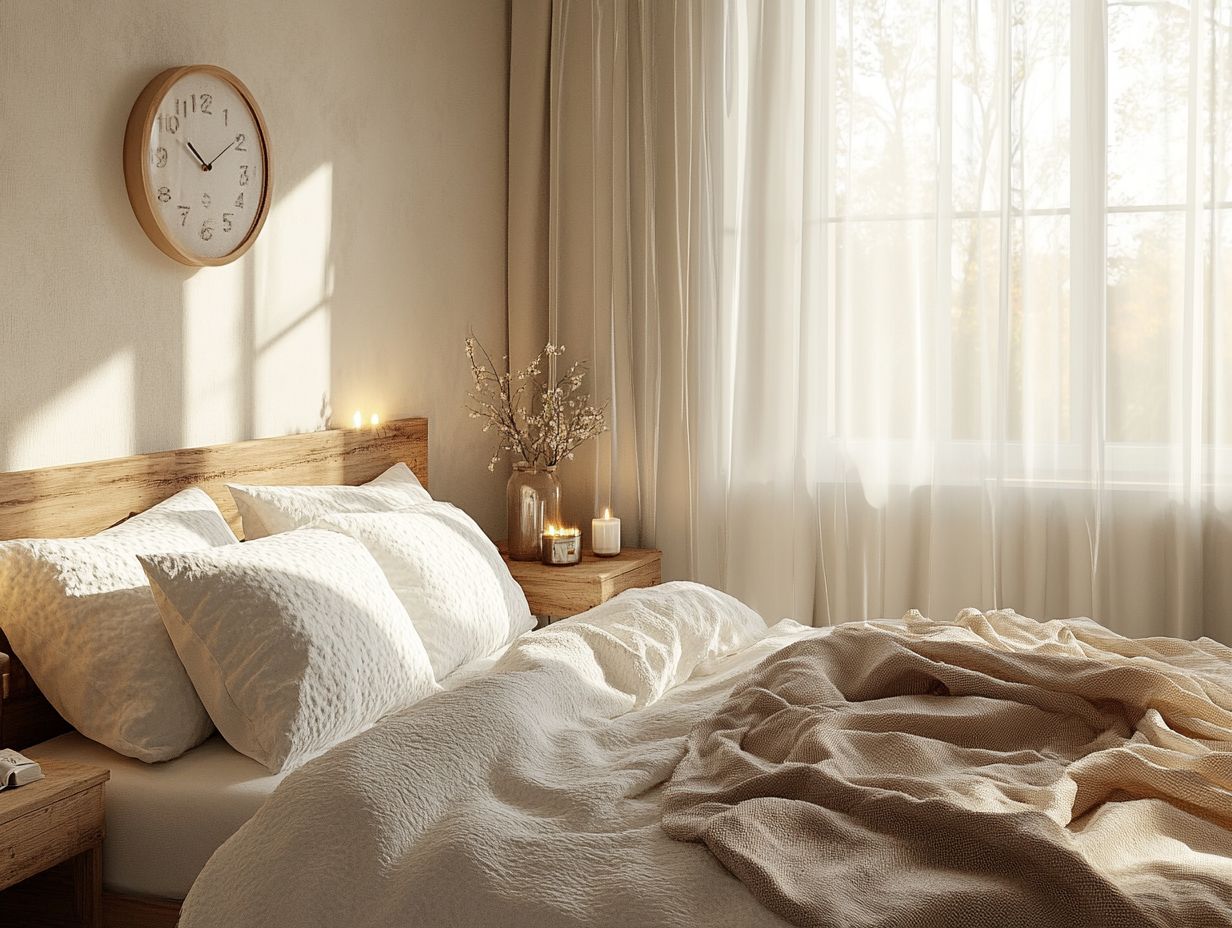
- Create a calming sleep environment by lowering the lights, minimizing noise and distractions, and using comfortable bedding.
- Stick to a consistent sleep schedule by going to bed and waking up at the same time each day, even on weekends.
- Limit caffeine and alcohol intake, especially close to bedtime, as they can disrupt sleep patterns and lead to poor sleep quality.
1. Create a Relaxing Sleep Environment
Creating a serene sleep environment is vital. It enhances your overall sleep quality. This involves various elements, such as practicing good sleep hygiene, selecting the right bedding, and using blackout curtains to eliminate distractions.
Allowing natural light to filter in during the day helps regulate your body s natural sleep-wake cycle. Effective relaxation techniques promote deeper rest and rejuvenation. A thoughtfully designed sleep space fosters a smooth transition into slumber, essential for both physical and mental wellness. You ll wake up refreshed and ready to conquer the day.
Choosing the right mattress is key. It offers the support your body needs, minimizing discomfort and aches. The ideal mattress should adapt to your unique shape while maintaining proper spinal alignment.
Incorporating blackout curtains greatly enhances your sleep environment by blocking out artificial light. This creates a tranquil haven for restorative sleep. Embracing natural light throughout the day is crucial for signaling to your body when it s time to be awake and when it s time to unwind.
Integrating relaxation techniques, like deep breathing or essential oils through aromatherapy, can further elevate your sleep quality. This approach calms your mind and prepares your body for restorative sleep, ultimately enhancing your overall well-being.
2. Stick to a Consistent Sleep Schedule
Sticking to a consistent sleep schedule is crucial for maintaining a healthy lifestyle. It helps regulate your internal clock and enhances overall sleep quality.
By establishing a regular bedtime and wake-up time, you can enjoy deeper, more restorative sleep. This makes it much easier to rise feeling refreshed and energized. This routine supports better physical health. It also boosts mental clarity and emotional stability.
To create an effective sleep routine, start by setting a wake-up time that aligns with your daily commitments. Incorporate a calming pre-sleep ritual, like reading a book or practicing meditation. This sends a clear message to your body that it s time to wind down, fostering an environment that s perfect for relaxation and rest.
3. Limit Caffeine and Alcohol Intake
Limiting your caffeine and alcohol intake is essential for achieving restorative sleep. Both substances can significantly impair sleep quality and adversely affect your mental health.
When consumed too close to bedtime, caffeine disrupts your natural sleep cycle, delaying sleep and reducing the time you spend in deep and REM sleep both crucial for rejuvenation. While alcohol may initially lull you into relaxation, it often leads to fragmented sleep and can exacerbate sleep apnea, leaving you feeling fatigued and unrefreshed the next morning.
To counter these effects, swap caffeinated beverages for herbal teas or decaffeinated options. Set a firm cut-off time for caffeine about six hours before sleep. Similarly, aim to limit your alcohol intake, particularly in the evening, to enhance your overall restfulness and support your mental well-being.
4. Practice Relaxation Techniques
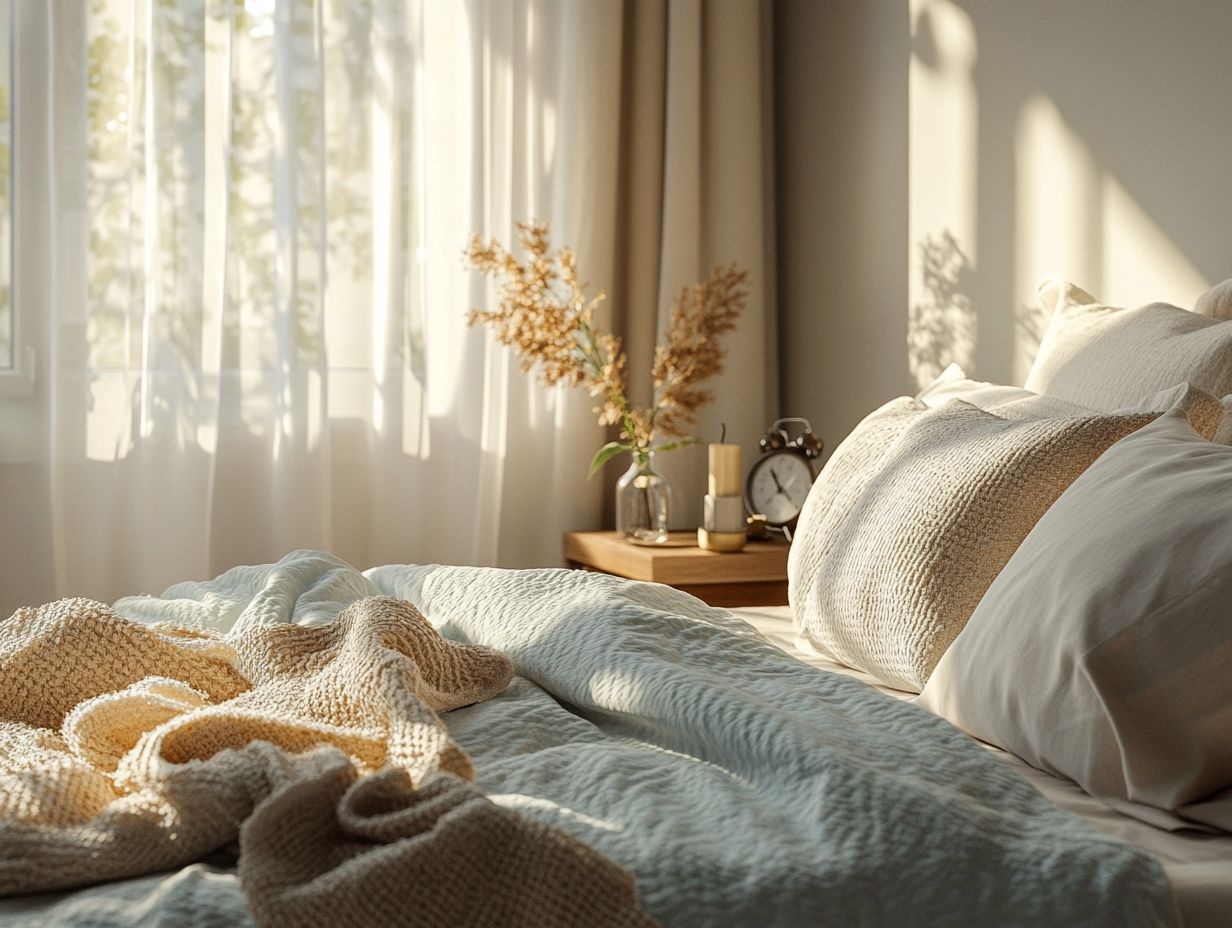
Practicing relaxation techniques is essential for mastering stress management and ensuring a serene transition to sleep. Engaging in methods like deep breathing, yoga, and meditation can profoundly elevate your overall well-being.
Dedicate just a few minutes each day to these practices to cultivate a sense of calm amid the chaos of everyday life. For example, try deep breathing: inhale slowly through your nose, hold for a count of four, and exhale through your mouth. This simple process activates your body s natural way to calm down.
Incorporating yoga into your morning routine enhances flexibility while nurturing mindfulness. This allows you to focus fully on the present moment. Set aside time for meditation whether through guided sessions or just sitting quietly to help clear your mind and diminish anxiety.
Use these techniques regularly for lasting benefits, paving the way for a more balanced and peaceful existence.
5. Exercise Regularly
Exercising regularly is a cornerstone of your physical health and plays a significant role in enhancing your sleep quality. It boosts your performance and serves as an effective tool for managing stress.
With a diverse range of activities available, you can easily discover something you genuinely enjoy. Whether you prefer aerobic workouts like running or cycling, these activities elevate your heart rate and tire your body, paving the way for restful sleep. Strength training is another powerful ally; it bolsters muscle recovery and stamina, making it easier for you to drift off at night.
Meanwhile, flexibility exercises like yoga or stretching enhance your mobility and work wonders in reducing tension and anxiety. By establishing a routine that incorporates these various forms of exercise, you can effectively regulate your sleep patterns and cultivate healthier habits, contributing to a more balanced lifestyle.
How Much Sleep Do You Really Need?
Understanding how much sleep you truly need is crucial for maintaining a healthy lifestyle and achieving optimal sleep quality. Your individual requirements can vary significantly based on factors like age, physical health, and lifestyle habits.
For instance, infants often require up to 16 hours of slumber, while teenagers typically need around 8 to 10 hours to support their rapid growth and development. Adults generally thrive on 7 to 9 hours, while older adults might find that 6 to 8 hours is sufficient, depending on their overall health.
Sleep deprivation and insomnia can lead to a host of health issues, including weakened immunity, heightened stress, and impaired cognitive function. This highlights the undeniable necessity of restorative rest. It s vital for you to tune into your body and recognize when you need more sleep, as inconsistent rest can disrupt both your physical and mental well-being.
What Are the Benefits of a Good Night’s Sleep?
A good night s sleep offers a wealth of benefits that go far beyond mere rest, significantly enhancing both your physical and mental health while laying the groundwork for a thriving lifestyle.
Quality sleep is crucial for your cognitive function, enabling your brain to consolidate memories and process information efficiently. Research shows that when you consistently achieve the recommended seven to nine hours of sleep each night, you’ll experience improved problem-solving skills and a surge in creativity.
Sufficient rest is also key to regulating your mood. Studies indicate that sleep deprivation can lead to increased irritability and stress, while proper sleep nurtures emotional resilience. Athletes and those engaged in regular physical activity often report that adequate sleep enhances their performance and endurance. One study even suggests that well-rested individuals improved their sprint times by up to 10%.
Prioritize your sleep today for better health and happiness!
What Are the Consequences of Not Getting Enough Sleep?
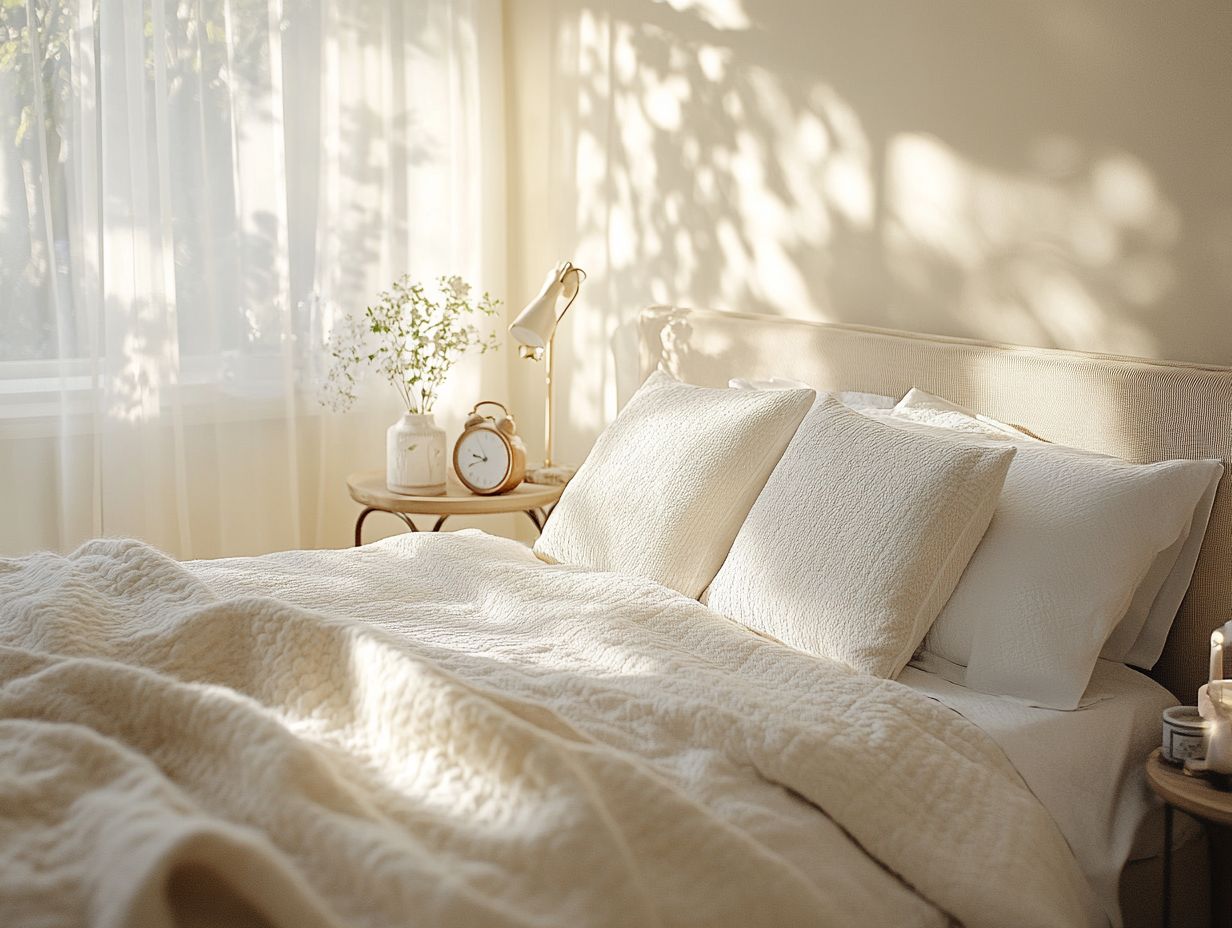
The consequences of not getting enough sleep can be extensive. They can lead to insomnia, heightened anxiety disorders, and a noticeable decline in both mental and physical health.
Research shows that chronic sleep deprivation doesn t just impact your cognitive abilities like memory retention and decision-making but it also significantly weakens your immune system. This leaves you more vulnerable to illness. When you consistently skimp on sleep, you may grapple with increased stress levels, making it challenging to handle everyday hurdles.
Studies also show a strong correlation between insufficient rest and various health issues, including an elevated risk of chronic diseases like heart conditions and diabetes. Ultimately, this detracts from your overall quality of life and well-being.
How Can Technology Affect Sleep Quality?
Technology can profoundly influence your sleep quality, often making it difficult to achieve a restful night. Factors such as blue light exposure and stress from constant connectivity hinder effective stress management.
The incessant buzz of smartphones and notifications disrupts your natural wind-down process, complicating the transition into a peaceful state of rest. Research indicates that excessive screen time elevates anxiety levels, creating a vicious cycle where stress keeps you awake at night and adversely affects your sleep hygiene.
Set screen time limits now to boost your relaxation before bed! Using blue light filters can also minimize the harsh impact of screens during the hours leading up to sleep. This enhances your chances of enjoying a truly restorative night s rest and promotes healthy habits.
What Are the Best Foods for Better Sleep?
Certain foods can greatly enhance your sleep quality. Focus on those rich in tryptophan (an amino acid that helps you sleep) and melatonin, along with healthy carbs that foster a calm state conducive to restful slumber, contributing to better exercise performance.
Ready to sleep better? Try adding chicken to your diet! It serves as an excellent source of tryptophan, crucial for producing serotonin and melatonin hormones that regulate your sleep cycles. Quinoa offers complex carbohydrates that help transport tryptophan to your brain more efficiently.
Fruits like cherries are abundant in melatonin. Sweet potatoes, loaded with vitamins and wholesome carbs, promote a satisfying sense of fullness and relaxation.
Collectively, these foods not only support your body s ability to produce sleep-regulating hormones but also play a vital role in overall nutrition. They are essential for anyone keen on enhancing their sleep habits and maintaining nutrition.
What Are Some Common Sleep Disorders and How Can They Be Treated?
Common sleep disorders, such as insomnia and anxiety, need your attention. Consult a sleep specialist or doctor to ensure effective treatment and management, including exploring relaxation techniques.
These conditions often present through symptoms like difficulty falling asleep, frequent awakenings throughout the night, or excessive daytime fatigue. If you find yourself grappling with these issues, consider exploring treatments like cognitive behavioral therapy, which can help reshape negative thought patterns around sleep. Additionally, you may want to understand the science behind relaxation techniques to further improve your sleep quality.
While medication might offer short-term relief, integrating lifestyle changes like regular exercise and establishing a calming bedtime routine can significantly enhance your sleep quality. Additionally, exploring relaxation techniques for better sleep can further improve overall stress levels.
Consulting with a healthcare provider is essential. They can tailor solutions to meet your specific needs, ensuring a comprehensive approach to achieving those coveted restful nights and improving your sleep hygiene.
Frequently Asked Questions
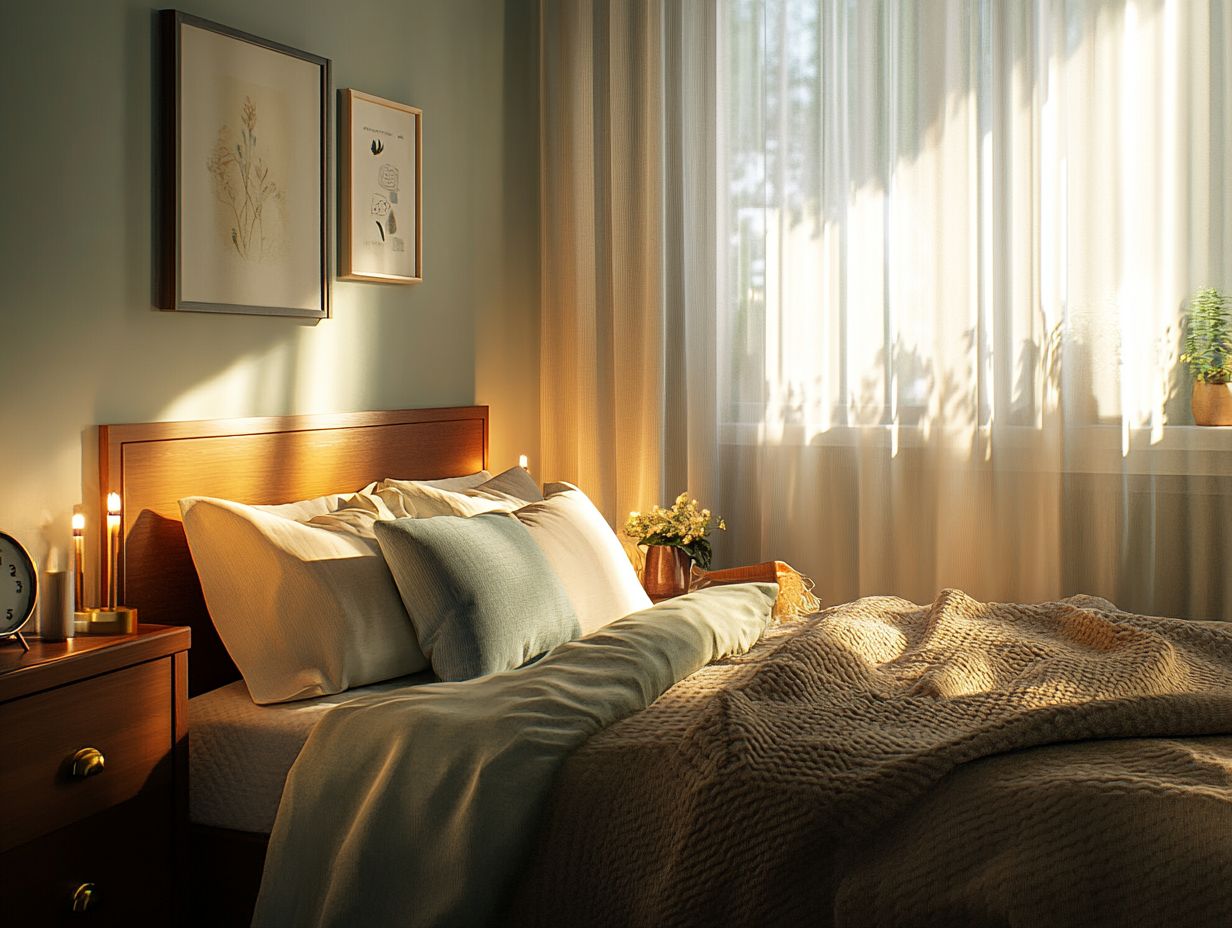
What are some tips for improving sleep hygiene?
How can I create a calming bedtime routine?
What foods should I avoid before bed?
1. What are the 5 simple techniques for better sleep?
To sleep better, try these five techniques:
- Establish a routine.
- Create a cozy sleep environment like using blackout curtains.
- Limit screen time before bed.
- Avoid heavy meals, caffeine, and nicotine close to bedtime.
- Practice relaxation techniques like deep breathing or meditation.
2. How can establishing a routine improve my sleep?
A consistent bedtime and wake-up time help regulate your body’s internal clock. This makes it easier to fall asleep and wake up feeling refreshed.
3. Is creating a comfortable sleep environment important for better sleep?
Yes! A comfortable sleep environment greatly impacts your sleep quality. Consider room temperature, lighting, noise level, and your mattress and bedding.
4. Why should I limit screen time before bed?
Electronic screens emit blue light that reduces melatonin, a hormone that helps you sleep. This makes it harder to drift off and affects your overall sleep quality.
5. Can heavy meals and caffeine affect my sleep?
Yes, heavy meals and caffeine close to bedtime can interrupt your sleep. Heavy meals cause discomfort, while caffeine keeps you alert.
6. How can relaxation techniques help improve my sleep?
Relaxation methods, like deep breathing and gentle stretching, calm your mind and body. This makes it easier to fall asleep, reducing stress and enhancing sleep quality.




